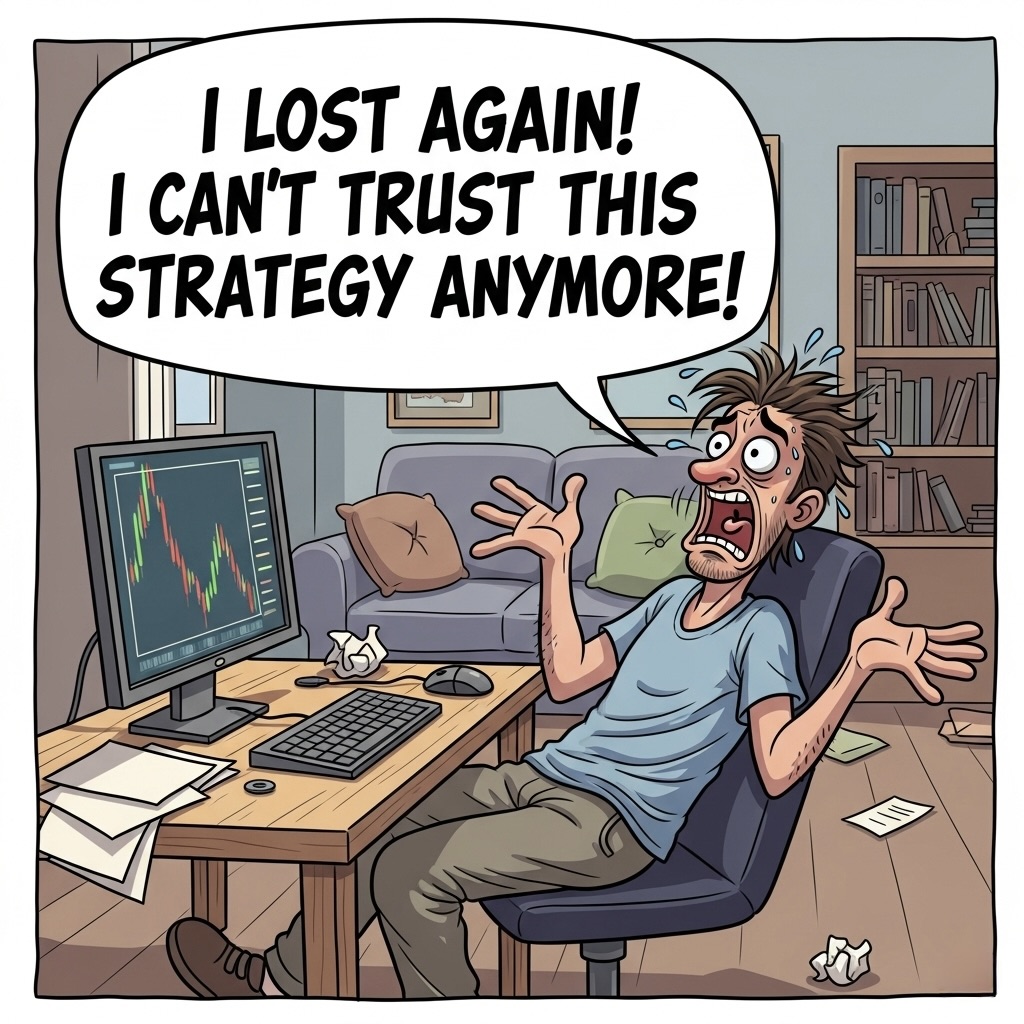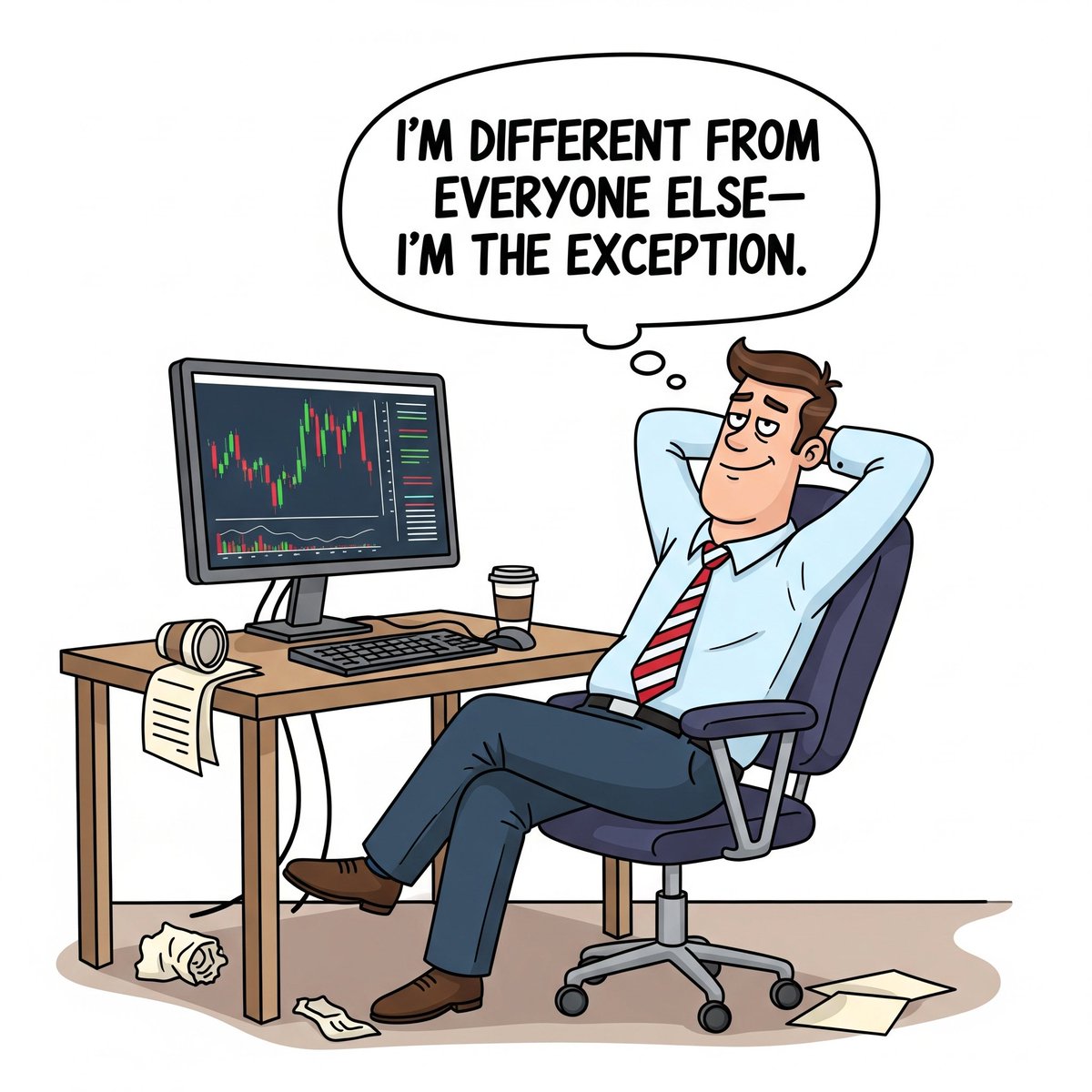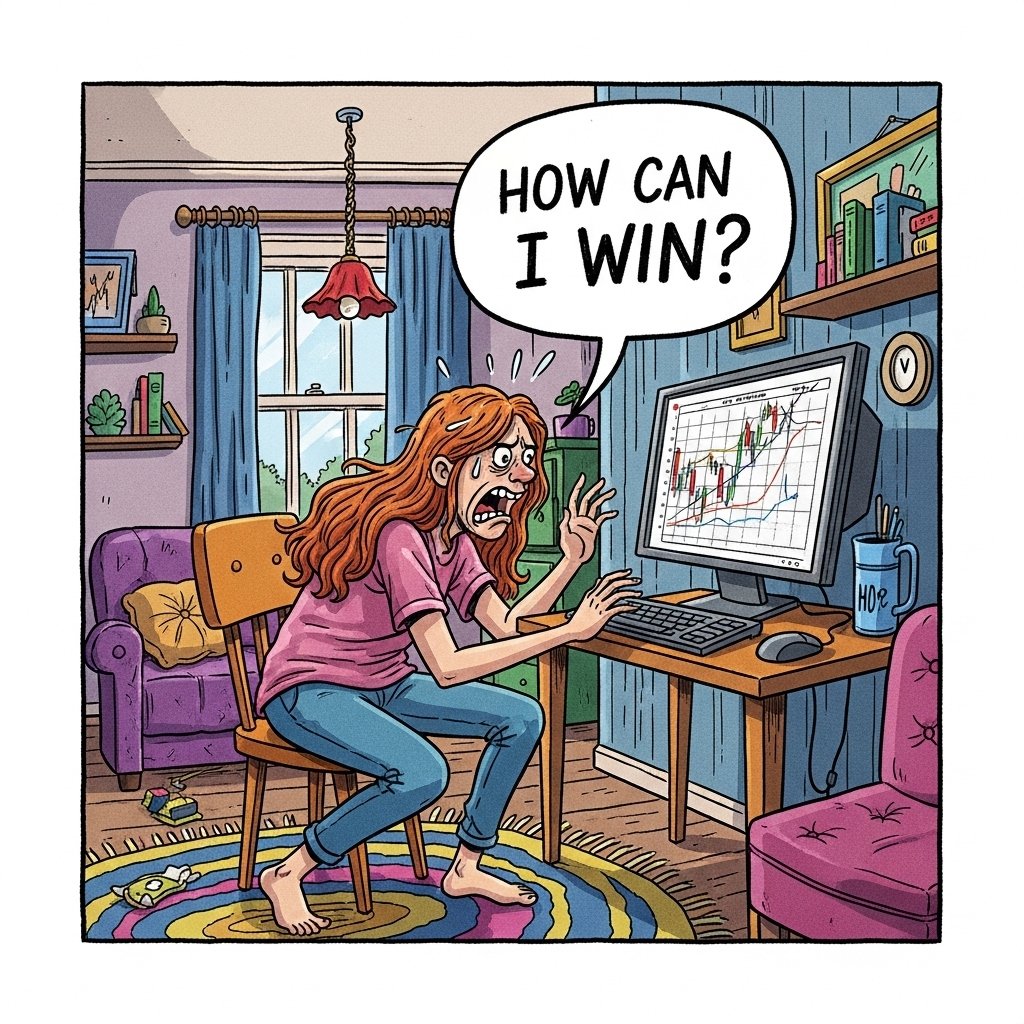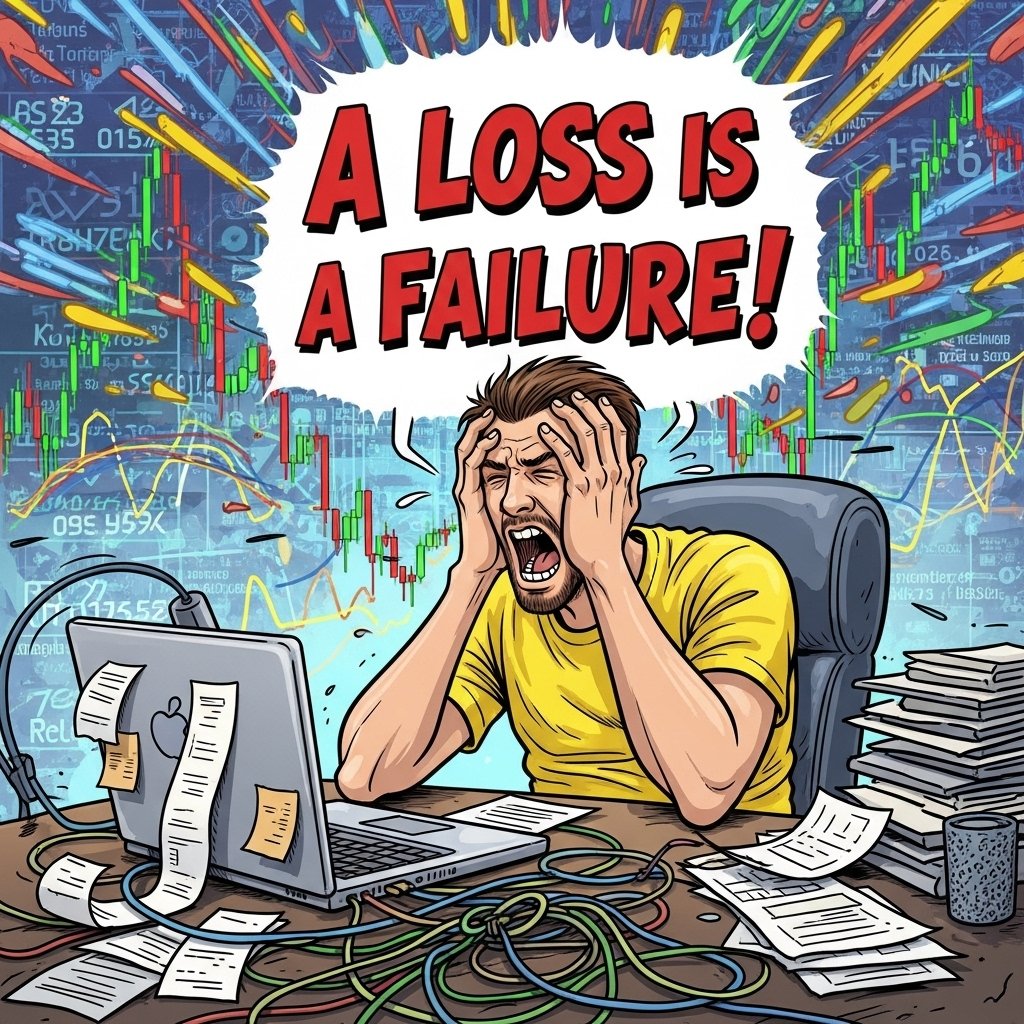You can only act by believing in positive expected value🧵
To maintain consistent actions, you have no choice but to "believe."
🧵1/5
To maintain consistent actions, you have no choice but to "believe."
🧵1/5

2/5
Short-term outcomes are heavily influenced by randomness, so we must continue consistent actions over the long term.
The reason you abandon a strategy with positive expected value midway is that you don't fully believe in it.
Since the future is uncertain and no one can guarantee the future returns of that strategy, all we can do is "believe."
That's why it's crucial how you've built that trust—such as the sample size you used to test or "practice" the strategy in advance, or how many years you've maintained consistent actions.
Short-term outcomes are heavily influenced by randomness, so we must continue consistent actions over the long term.
The reason you abandon a strategy with positive expected value midway is that you don't fully believe in it.
Since the future is uncertain and no one can guarantee the future returns of that strategy, all we can do is "believe."
That's why it's crucial how you've built that trust—such as the sample size you used to test or "practice" the strategy in advance, or how many years you've maintained consistent actions.
3/5
I don't think I'll definitely win the next trade.
Conversely, I don't think I'll definitely lose either.
I always consider that the outcome right in front of me is unpredictable, and that has become my natural state of mind.
However, I trust in the positive expected value of my own strategy and actions.
This trust is firmly established from both logical reasoning and experience.
Since I can consistently trade at advantageous points where orders concentrate while always controlling risk, I believe it's impossible for my funds to simply disappear if I continue repeating these asymmetric bets into the future.
And on top of that trust, long-term consistency is born, and that consistent action further strengthens my trust in the strategy, creating a positive spiral.
I don't think I'll definitely win the next trade.
Conversely, I don't think I'll definitely lose either.
I always consider that the outcome right in front of me is unpredictable, and that has become my natural state of mind.
However, I trust in the positive expected value of my own strategy and actions.
This trust is firmly established from both logical reasoning and experience.
Since I can consistently trade at advantageous points where orders concentrate while always controlling risk, I believe it's impossible for my funds to simply disappear if I continue repeating these asymmetric bets into the future.
And on top of that trust, long-term consistency is born, and that consistent action further strengthens my trust in the strategy, creating a positive spiral.
4/5
I can almost hear the voice saying, "What if you believe in the strategy and it betrays you?" But if you start saying that, you'll never be able to maintain consistency forever.
Because future profits can never be guaranteed, and in the end, all you can do is "believe," which means that trust must be even more solid.
If you want something that's absolutely guaranteed, trading isn't for you.
Trading is a world of probabilities and possibilities, and to take risks while maintaining long-term consistency, belief is absolutely essential.
The mindset of thinking "this loss is just a cost" arises precisely because you trust in the positive expected value of that strategy.
In other words, without the fundamental premise that "my strategy has positive expected value," we cannot act in this uncertain world.
I can almost hear the voice saying, "What if you believe in the strategy and it betrays you?" But if you start saying that, you'll never be able to maintain consistency forever.
Because future profits can never be guaranteed, and in the end, all you can do is "believe," which means that trust must be even more solid.
If you want something that's absolutely guaranteed, trading isn't for you.
Trading is a world of probabilities and possibilities, and to take risks while maintaining long-term consistency, belief is absolutely essential.
The mindset of thinking "this loss is just a cost" arises precisely because you trust in the positive expected value of that strategy.
In other words, without the fundamental premise that "my strategy has positive expected value," we cannot act in this uncertain world.
5/5
In this uncertain world, the outcome right in front of you is never guaranteed.
However, to make probabilities work, you must still continue consistently.
What enables that is trust, and the key is how deeply you can believe in your own strategy and actions.
And that trust should ideally be supported by both logic and experience, rather than mere assumptions or hopes.
To achieve this, conduct thorough preparation in advance and build trust in your strategy and statistics.
Thanks for reading!
If you enjoyed this thread, check out my books on trading.
E-book
payhip.com/YumiSakura/col…
Paperback
【THE PATH TO SUCCESS IN TRADING】
a.co/d/fXmRhIa
【Trading Psychology】
a.co/d/d0QJMxK
Hope these insights help your trading journey😊
In this uncertain world, the outcome right in front of you is never guaranteed.
However, to make probabilities work, you must still continue consistently.
What enables that is trust, and the key is how deeply you can believe in your own strategy and actions.
And that trust should ideally be supported by both logic and experience, rather than mere assumptions or hopes.
To achieve this, conduct thorough preparation in advance and build trust in your strategy and statistics.
Thanks for reading!
If you enjoyed this thread, check out my books on trading.
E-book
payhip.com/YumiSakura/col…
Paperback
【THE PATH TO SUCCESS IN TRADING】
a.co/d/fXmRhIa
【Trading Psychology】
a.co/d/d0QJMxK
Hope these insights help your trading journey😊
• • •
Missing some Tweet in this thread? You can try to
force a refresh










